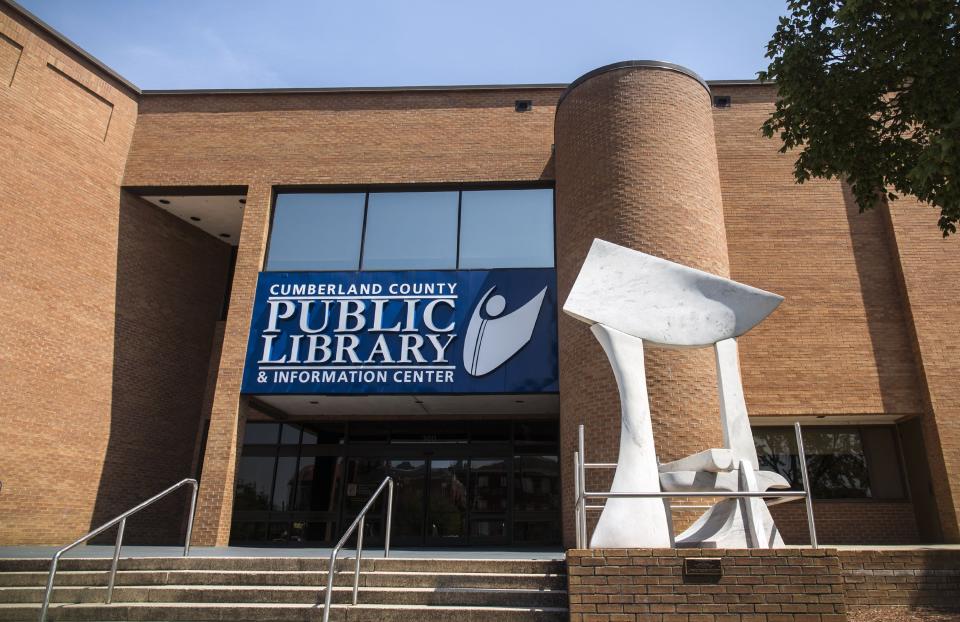Lawmakers want grown-up books, movies in NC libraries put in ‘adults only’ areas
Public libraries in North Carolina would have to set up “adults only” areas if they offer books, movies and other items with imagery that might be inappropriate for children due to portrayals of nudity or sexual content, under legislation unveiled last week at the General Assembly.
Further, if the bill becomes law, it would make librarians subject to criminal prosecution if a child at the library gets ahold of adults-only material.
The legislation would drive up the cost of operating the public libraries in Cumberland County, the county library director said on Friday. The bill includes no funding provisions to help local libraries cover the costs of implementing its mandates.
The library legislation is a small part of a 26-page bill that is mostly about new regulations for public schools.
The legislation is Senate Bill 90, Children’s Laws Omnibus. It was on the agenda for a meeting of the House Education-K-12 Committee, then it was removed shortly before the meeting started. Committee Chairman John Torbett, a Republican House member from Gaston County, told the Associated Press that committee members needed more time to review the bill.
Another new law: NC to crack down on drivers who take over streets for races, burnouts, drifting and other car stunts.

What would happen to public libraries?
The bill says public libraries would have to make sure material defined as “harmful to minors” be kept in restricted areas that no one under age 18 would have access to.
This applies both to the physical materials in the library buildings and the electronic materials that library patrons download to their computers, cellphones or electronic readers.
State law defines books, movies and other media and items as harmful to minors if they portray what the law defines as sexually explicit nudity or sexual activity. The law applies to photos, drawings, videos and other imagery or depictions, but not to written material.
“Explicit nudity” is any uncovered depiction of parts of the body that are typically kept private in American society. It also applies if those parts of the body are visible through transparent material, and it applies to a penis that is opaquely covered but in a “discernibly turgid state.”
“Sexual activity” in general is defined as sexually oriented activities or touching — unclothed or clothed — involving the genital area, buttocks or the female breast. It also includes depictions of someone dressed in undergarments or in a “revealing or bizarre costume” who is being tortured or is tied up or physically restrained, or is being whipped or beaten.
The law says the material is not harmful if it has “serious literary, artistic, political, or scientific value for minors.”
Libraries offer adults mature audience-rated television shows and R-rated movies that depict nudity and sexual activity. PG-13 movies sometimes depict nudity. Libraries have books that show historical and modern artistic works — paintings, photos or sculptures — that portray nudity. Libraries also have carried materials, such as National Geographic magazine, with imagery from communities where people wear little to no clothing.
Libraries lend romance novels and other books to adults that describe sexual activity. If the books have no photos or drawings depicting what the words portray, they are exempt from the “harmful to minors” designation.
“Under the proposed legislation, the County would incur costs in setting up age-restricted areas for materials and monitoring access,” said Faith Phillips, the director of the Cumberland County Public Library & Information Center. The library system has eight locations.
More rules for kids at the library
The bill would create other new laws for kids:
Current law requires libraries to keep private what materials a patron has requested, used or checked out from the library. This bill would create an exemption to that privacy law for parents to find out what materials their children have been getting at the library.
Libraries could not lend books to anyone under age 18 without prior written consent from a parent. (This consent could be obtained with the parent’s written consent for the minor to get a library card.)
Minors’ library cards would have to indicate the card belongs to a minor and restrict the minor from getting materials that the law considers to be harmful to minors.
Cumberland County’s library system already provides parental control, Phillips said.
Children don’t get library cards without permission from their parents, she said, and the parents select the level of access to materials they consider appropriate for their children.
“We trust and respect parents’ autonomy to make decisions for their children’s reading,” Phillips said.
Could librarians get arrested?
Senate Bill 90 would erase a legal protection for librarians.
Current law provides an automatic “affirmative defense” in the criminal justice system that protects library employees from being prosecuted if someone younger than age 18 gets materials from the library that are deemed to be harmful to minors. This same law provides an automatic defense to schools, museums, governmental agencies, medical clinics, hospitals and churches if they provide “harmful” materials while carrying out their legitimate functions.
The legislation would delete that protection for library employees and for schools, but leave it in place for the rest of those organizations.
Senior North Carolina reporter Paul Woolverton can be reached at 910-261-4710 and pwoolverton@fayobserver.com.
This article originally appeared on The Fayetteville Observer: Proposed NC law: Protect kids with ‘adults-only’ zones in libraries

